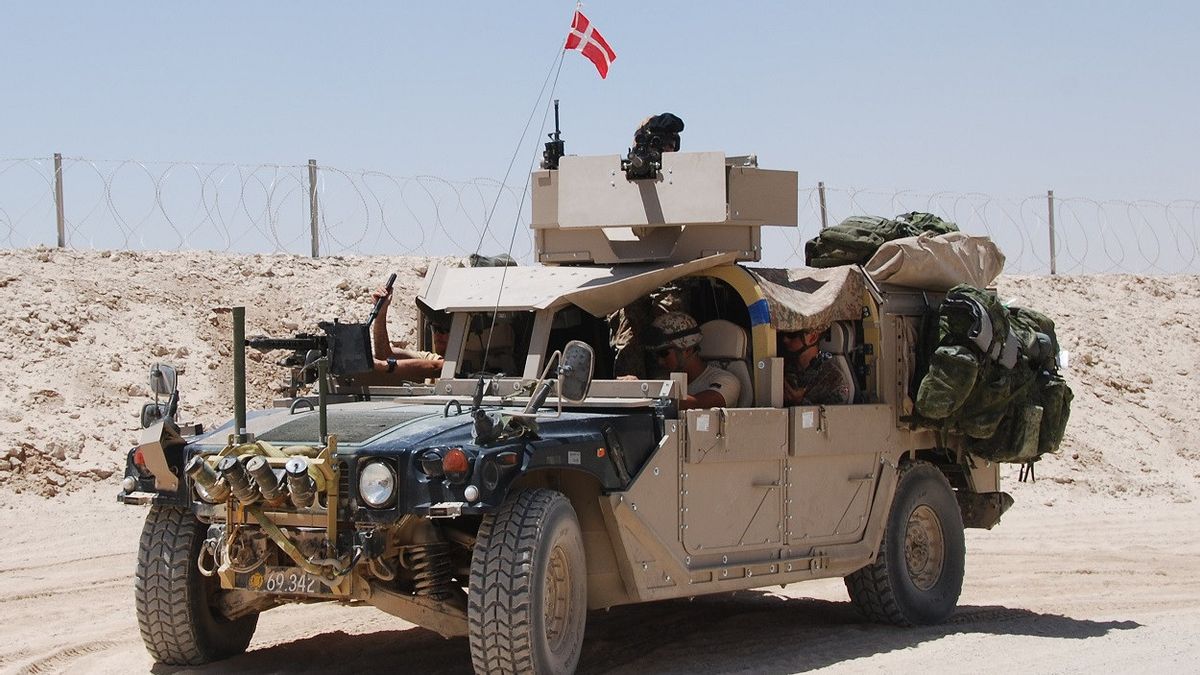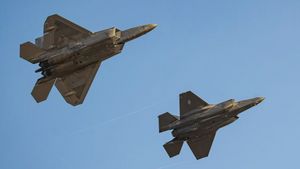JAKARTA - The Danish intelligence service admits that it has misjudged and is overly optimistic about the information, analysis and assessment of the situation in Afghanistan, where the Taliban are not expected to be able to seize the capital Kabul this year.
In a briefing to the Danish Parliament on August 9, the Danish Defense Intelligence Service (FE) estimated that it is relatively unlikely that Kabul will fall by 2021. In fact, less than a week later the Taliban managed to enter Kabul, occupy the presidential palace and drive President Ashraf Ghani out in August. 15 last August.
"There are particular challenges in terms of the situation in Afghanistan, as access to information has weakened as a result of the coalition's withdrawal. However, these conditions do not change the fact that we should learn from these developments. It is not surprising that Kabul fell, but the speed at which it happened is something we consider it impossible," said Svend Larsen, the acting head of FE in a statement, citing Sputnik Thursday, August 26.
"We based our evaluation on the intelligence we have from our own sources and international partners, but our estimates have proven to be overly optimistic," he added.
FE promises to use the experience gained from Afghanistan to improve its internal performance.

However, Danish defense and security experts called the error rare and the admission unusual.
"It's happened before, but it's certainly not uncommon and it's rare for mistakes to be made this way, and it's also rare for FE to come out and admit it," Flemming Splidsboel Hansen, senior research fellow at the Danish Institute for International Studies told Radio Denmark.
Meanwhile, Thomas Wegener Friis, a professor at the University of Southern Denmark, which is affiliated with the Center for War Studies, said this problem was far from common.
"And that naturally begs the question: Who guessed wrong? Did the politicians know what was happening and did they cynically calculate the collapse, or did the intelligence services guess the development wrong," Friis criticized.
Separately, according to the Berlinske newspaper, in June a weekly report from the commander of the Danish forces in Afghanistan described developments in the country as 'worrying', adding that the Afghan army was faced with a strong challenge by the Taliban.

The morale of the Afghan army was also described as 'decreased' and 'reached a critical level'. However, both the Ministry of Defense and the Ministry of Foreign Affairs denied receiving the report, much to the surprise of Martin Marcussen, a professor in the Department of Political Science at the University of Copenhagen, who believes this is absurd.
This condition was criticized by two parties supporting the government, the Socialist People's Party and the Social Liberal Party, who said the failed assessment might end up costing people, because it caused a late evacuation from Kabul.
"When we get intelligence reports that are very wrong, we also get late evacuations. That means the people we have to evacuate are in a much more dangerous situation than if they were evacuated at the right time. It's dangerous like that," defense spokeswoman for the Socialist People's Party Anne Valentina Berthelsen told Radio Denmark.
The same message was echoed by the foreign spokesman for the Social Liberal Party, Martin Lidegaard.
"We take it very seriously. It may cost human lives to start so late," he stressed.
To note, Denmark's involvement in Afghanistan dates back to 2001, with Danish troops deployed since 2002. Overall, the Danish mission has cost millions of kronor, suffering 43 deaths and over 210 injuries.
The English, Chinese, Japanese, Arabic, and French versions are automatically generated by the AI. So there may still be inaccuracies in translating, please always see Indonesian as our main language. (system supported by DigitalSiber.id)













